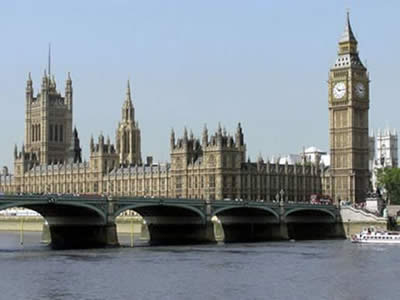Britain's secret service went public Thursday to defend its "utmost integrity" and to pledge that its agents and officials had had "nothing whatsoever" to do with torture, DPA reported.
The unprecedented public comments came in a speech in London by John Sawers, a former British ambassador to the United Nations (UN), Egypt, Baghdad and South Africa, who now heads the foreign intelligence service MI6.
In a speech to the Society of Editors in London Sawers, who is known just as "C" in government circles, said: "Torture is illegal and abhorrent under any circumstances and we have nothing whatsoever to do with it."
The 55-year-old ex-diplomat, who became head of MI6 a year ago, is the first serving espionage chief to make a public speech in the 100-year-old secret service.
Earlier this year, his counterpart at MI5, the domestic counter-intelligence service, Jonathan Evans, made a similar public appearance.
But despite his attempt to project the organization as transparent and law-abiding, Sawers also defended the need to protect secrets.
"Secrecy is not a dirty word. Secrecy is not there as a cover-up," he said.
"Secret organizations need to stay secret, even if we present an occasional public face, as I am doing today. If our operations and methods become public, they won't work. Agents take risks."
Sawers, whose chief task has changed from tracking down Russian spies to fighting al-Qaeda and monitoring Iran's alleged nuclear ambitions, conceded that it was sometimes difficult to vouch for the credibility of intelligence material supplied by partner services.
"We also have a duty to do what we can to ensure that a partner service will respect human rights. That is not always straightforward," he said.
"If we know or believe action by us will lead to torture taking place, we're required by UK and international law to avoid that action. And we do, even though that allows the terrorist activity to go ahead," said the MI6 chief.
However, the service also had to operate in the real world, and needed to work with agencies from other countries which were not always "friendly democracies," he said.
"Suppose we received credible intelligence that might save lives, here or abroad. We have a professional and moral duty to act on it. We will normally want to share it with those who can save those lives," he said.
His remarks were seen as an attempt to draw a line under recent allegations from former detainees, and their legal representatives, that details provided by MI6 officials led to their torture.
The most prominent case, currently subject to legal proceedings, is that of former Guantanamo Bay inmate Binyam Mohammed, who has claimed that he was tortured in Pakistan and Morocco following his arrest in Pakistan 2002.
Mohamed, an Ethiopian national, has alleged that only material supplied by British intelligence could have provided the basis for his questioning and mistreatment. He was freed from Guantanamo in early 2009 and now lives in London.
British secret service chief goes on defensive - in public
Britain's secret service went public Thursday to defend its "utmost integrity" and to pledge that its agents and officials had had "nothing whatsoever" to do with torture.






